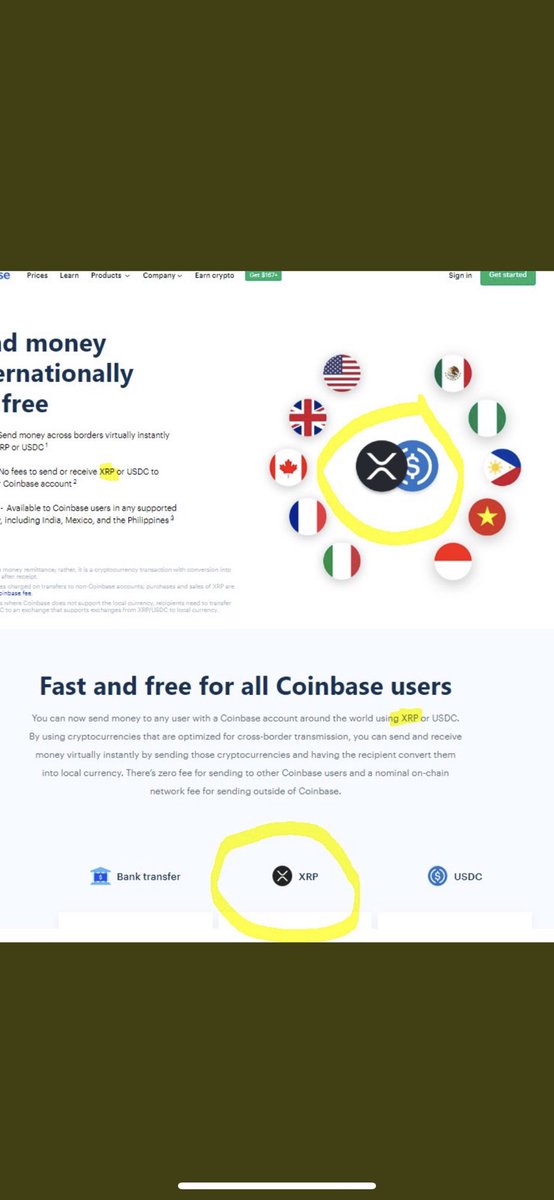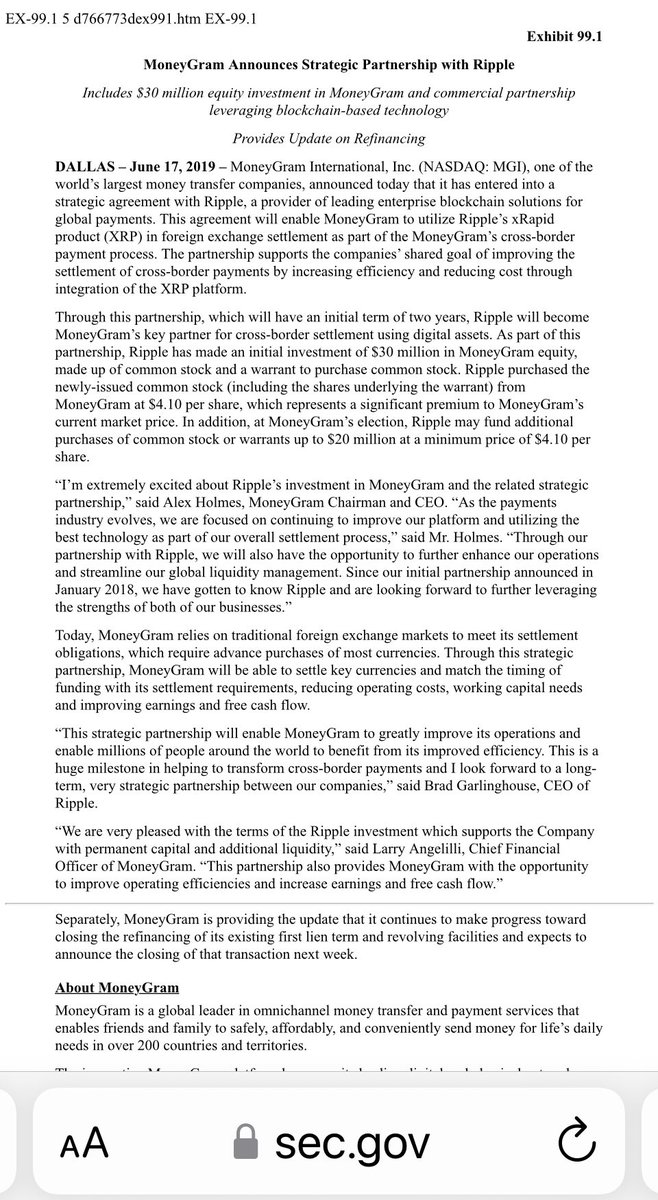Yet, the FND is pled as Ripple’s Fourth Affirmative Defense. Is Ripple’s FND argument different or unique than previous one’s? Yes!
But we must first fully understand the nature of the FND and when, if ever, it would become relevant in the case.
But we must first fully understand the nature of the FND and when, if ever, it would become relevant in the case.
To fully comprehend Ripple’s FND, we must first distinguish it from the typical “fair notice” argument that has been raised in previous crypto cases (e.g. Telegram, Kik, @LBRYcom).
We must also distinguish Ripple’s FND from arguments regarding issues of selective enforcement (the issue that some projects get a free pass while others get prosecuted) or the issue of regulatory capture by a select few investors who have captured transient regulators. 🤔
Personally, I believe many experienced securities lawyers (@JohnReedStark) and others are too quick to dismiss Ripple’s FND. It is likely because they are confusing it with the typical due process argument that has already failed several times in crypto cases.
The typical notice argument has centered around claims that the statutory term “investment contract” is too vague and the Howey test does not provide adequate notice to entrepreneurs involved in blockchain technologies in a way that allows them to know what’s not allowed.
Telegram, Kik, and LBRY made similar arguments. Those arguments failed in each case - as they should. Some of you might be surprised to hear me say that - but the law is the law. Yes, Congress should modernize the law and provide regulatory clarity but existing law is what it is.
The Howey test is flexible. Howey actually reads:
“[The test] embodies a flexible rather than a static principle, one that is capable of adaptation to meet the countless and variable schemes
devised by those who seek the use of the money of others on the promise of profits.”
“[The test] embodies a flexible rather than a static principle, one that is capable of adaptation to meet the countless and variable schemes
devised by those who seek the use of the money of others on the promise of profits.”
Therefore, arguing that the term investment contract in the statute and the Howey test itself are too vague to be applied to blockchain technologies is a losing argument.
But that’s not what Ripple is arguing relative to its FND argument. Not even close.
But that’s not what Ripple is arguing relative to its FND argument. Not even close.
Ripple’s FND is specific to #XRP and the specific facts of how U.S. agencies, especially the SEC, treated #XRP.
I believe Ripple’s FND has teeth and there’s a real chance Judge Torres rules the FND is an issue for a jury to decide, if the judge finds any sales violated the law.
I believe Ripple’s FND has teeth and there’s a real chance Judge Torres rules the FND is an issue for a jury to decide, if the judge finds any sales violated the law.
In other words, Judge Torres does NOT even consider the FND UNLESS she rules Ripple offered/sold #XRP as a security. If she decides Ripple did not offer and/or sale #XRP as a security at any time (past or present), she doesn’t even get to the FND issue and Ripple wins outright.
Now that we understand when or how the FND becomes relevant, we need to understand why Ripple’s argument is different from earlier cases. That’s b/c the facts surrounding #XRP are quite different than other cases. Here’s a few examples of why Ripple’s FND has teeth 🦷:
First, before getting into specific relevant facts, you must keep in mind that #XRP was openly traded in the U.S. for almost EIGHT YEARS before the suit, and, as you will learn, #XRP was well known to all the U.S. Government agencies, including the SEC, from the very beginning.
In 2013 @chrislarsensf met w/the @SECGov, @federalreserve, FinCEN, Treasury, and DOJ and gave a presentation on #XRP.
The SEC was present and didn’t warn “hey Chris, you just described a security - you better not give away or sell any #XRP.”
The SEC was present and didn’t warn “hey Chris, you just described a security - you better not give away or sell any #XRP.”
The next year, in 2014, the @USGAO highlighted XRP as a “virtual currency utilized in a decentralized payment platform called Ripple.”
In 2015, FinCEN & DOJ sued Ripple over #XRP sales and classified #XRP as “convertible virtual currency” forcing Ripple to comply w/banking laws.
In 2015, FinCEN & DOJ sued Ripple over #XRP sales and classified #XRP as “convertible virtual currency” forcing Ripple to comply w/banking laws.
Clearly, since FinCEN & the DOJ were at the 2013 #XRP presentation, they were watching closely. FinCEN shared the info with the SEC via an information sharing agreement that was in place. The SEC didn’t jump in and say “hey wait, these sales ALSO violate securities laws.”
In fact, when you read the FinCEN settlement agreement it directs Ripple to ONLY register sales with FinCEN and provide and pay for an auditor APPROVED BY THE DOJ and each year provide transparency of every sale or transfer of #XRP.
Are you starting to get the picture here?
Are you starting to get the picture here?
Since 2015, Ripple provided the U.S. Government with evidence of all its sales of #XRP. For more than FIVE YEARS the SEC didn’t do or say anything to stop these #XRP sales.
But today the SEC claims each and every one of those sales violated the law.
But there is so much more.
But today the SEC claims each and every one of those sales violated the law.
But there is so much more.
In 2017-2019 the SEC filed dozens of Crypto cases. XRP was either the 2nd largest crypto asset or the 3rd largest crypto asset during all these prosecutions.
In 2018 Hinman’s speech declared ETH not a security, even if its ICO was, b/c the network was sufficiently decentralized.
In 2018 Hinman’s speech declared ETH not a security, even if its ICO was, b/c the network was sufficiently decentralized.
Therefore, any network equal or slightly more decentralized than Ethereum doesn’t have to register. Listen to the lawyers who helped get #ETH a pass say it.👇
https://twitter.com/digitalassetbuy/status/1443162434156511232
When you consider Hinman’s speech, could Ripple convince a jury that it believed the #XRPLedger was as equally decentralized as ETH?
Plus, no case 🆚 Ripple was initiated during all those prosecutions. Not even a cease & desist letter was sent telling them to stop selling #XRP.
Plus, no case 🆚 Ripple was initiated during all those prosecutions. Not even a cease & desist letter was sent telling them to stop selling #XRP.
In fact, up until April 1, 2019, SEC enforcement lawyers and staff were allowed to OWN and TRADE #XRP.
In Jan. 2019 @coinbase met w/the SEC regarding #XRP. Coinbase informed the SEC that it determined that #XRP was NOT a security and was planning to list #XRP in February 2019.
In Jan. 2019 @coinbase met w/the SEC regarding #XRP. Coinbase informed the SEC that it determined that #XRP was NOT a security and was planning to list #XRP in February 2019.
Coinbase wanted to IPO. It wanted to make sure the SEC didn’t view XRP differently. The SEC did not deter Coinbase and XRP was listed. Immediately, Coinbase publicized XRP’s utility to send💰 cross border. XRP was used as a utility/exchange token, just as the U.K’s FCA describes 

Also in 2019, SEC published a Digital Asset Framework which said Howey is unlikely met if the network is fully functional and “it can immediately be used to make payments in a wide variety of contexts, or acts as a substitute for real (or fiat) currency.”
(Sounds like XRP)
(Sounds like XRP)
This is the remainder of the 🧵
https://twitter.com/johnedeaton1/status/1646669833809821696
• • •
Missing some Tweet in this thread? You can try to
force a refresh

 Read on Twitter
Read on Twitter





